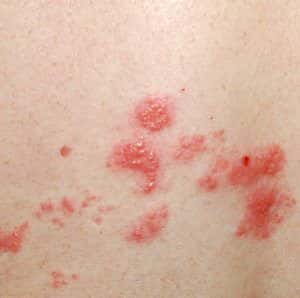
Recent research from South Korea raises the unsettling prospect that an attack of shingles is not only painful but scary. It could raise the risk of heart attack.
What Is Shingles?
Shingles, known medically as herpes zoster, is a one-sided rash that may appear decades after a person had chickenpox. The varicella zoster virus responsible for chickenpox gets reactivated. After that, it causes a very painful outbreak in a single line or on only one side of the body or the face. Before the rash develops, a person may notice an elevated temperature or a headache and feel unwell. The skin may tingle or itch for a few days in the area where the rash eventually appears. People suffer for a shorter time if they take antiviral drugs such as acyclovir, famciclovir or valacyclovir within the first few days of the attack.
Complications:
Doctors generally think of shingles as a temporary problem unless a person develops a complication. One is postherpetic neuralgia, excruciating pain that lasts long after the rash has disappeared. Shingles that spreads into the eye is another serious complication.
Shingles Linked to Risk of Heart Attack:
Now, however, physicians should consider shingles as a red flag for the heart. The Korean researchers titled their report: “Herpes Zoster Increases the Risk of Stroke and Myocardial Infarction.”
They used records from the South Korea National Health Insurance Service between 2003 and 2013. There were 519,880 people in the group they examined. During that time, 23,213 people developed shingles. The scientists matched these patients to other who served as the control subjects.
What Was Their Risk of Heart Attack?
Alarmingly, people who had shingles were 41 percent more likely to have a heart attack or stroke. The risk of stroke rose by 35 percent, while the risk of heart attack soared by 59 percent.
The investigators don’t know why shingles is linked to a risk of heart attack. They suggest, however, that primary care physicians whose patients have shingles should watch for other risk factors. People would than be able to take further steps, such as quitting smoking or starting an exercise program, that would mitigate their risk of cardiovascular disease.
Kim et al, Journal of the American College of Cardiology, July 11, 2017

